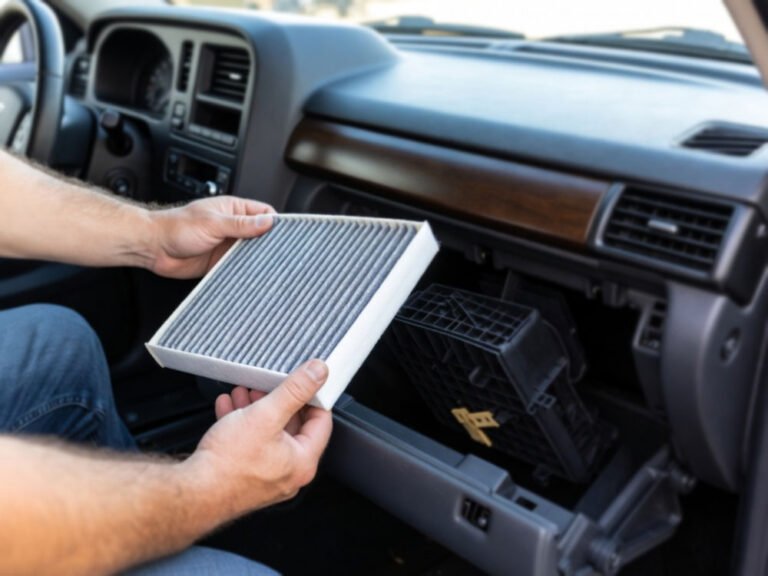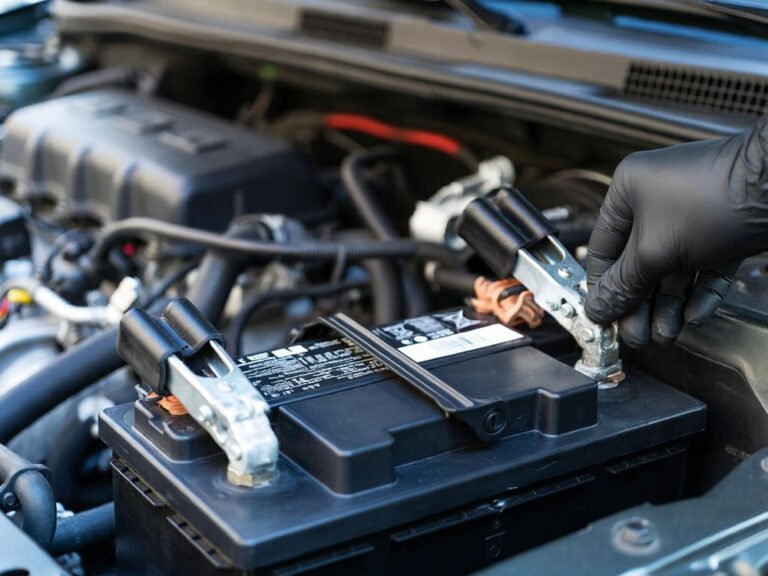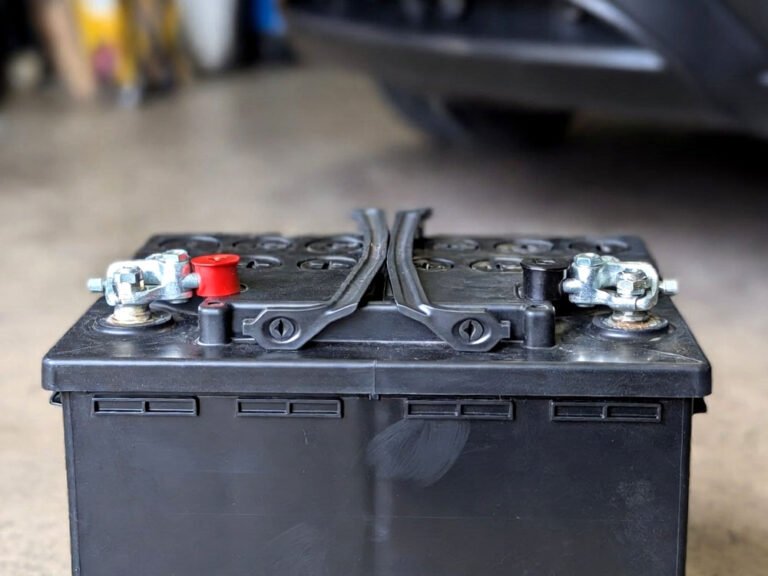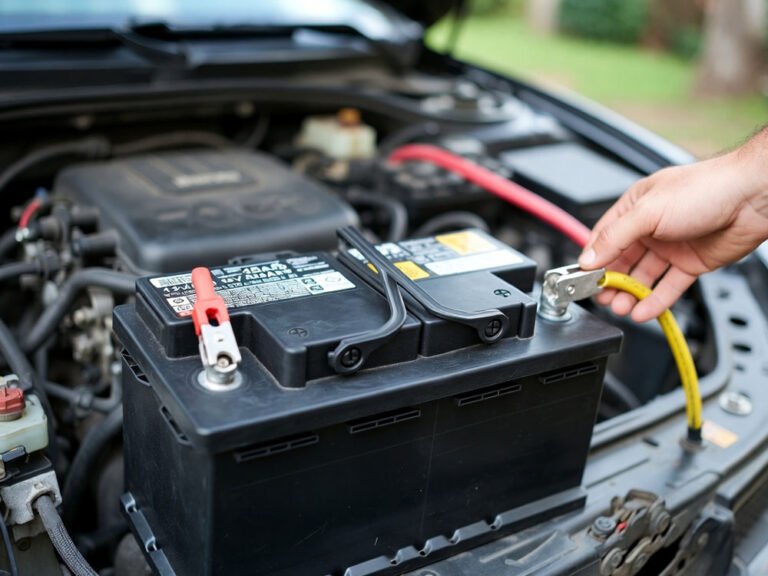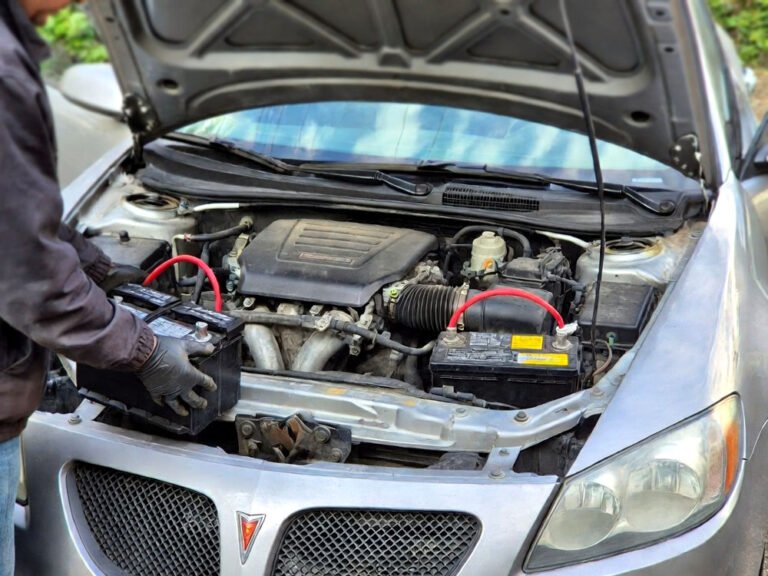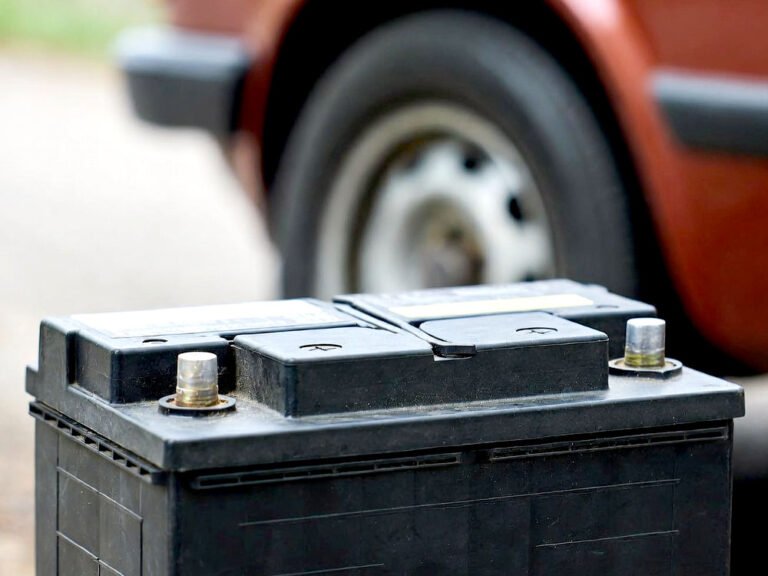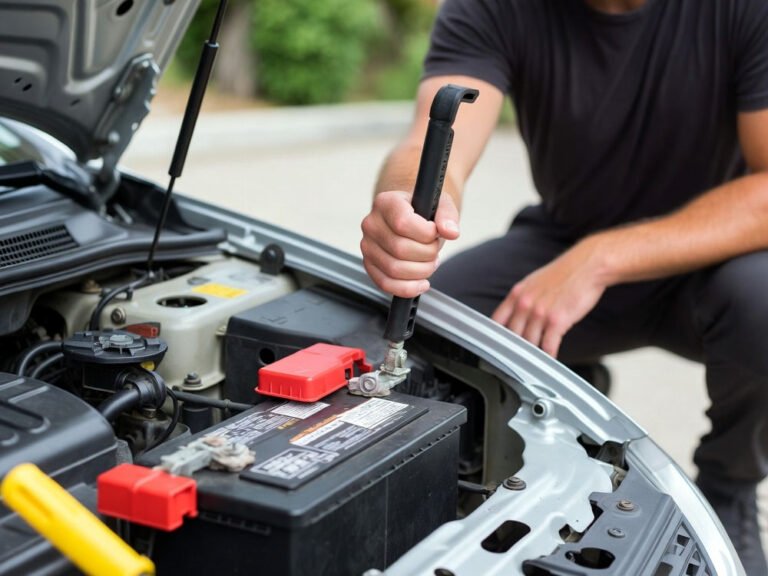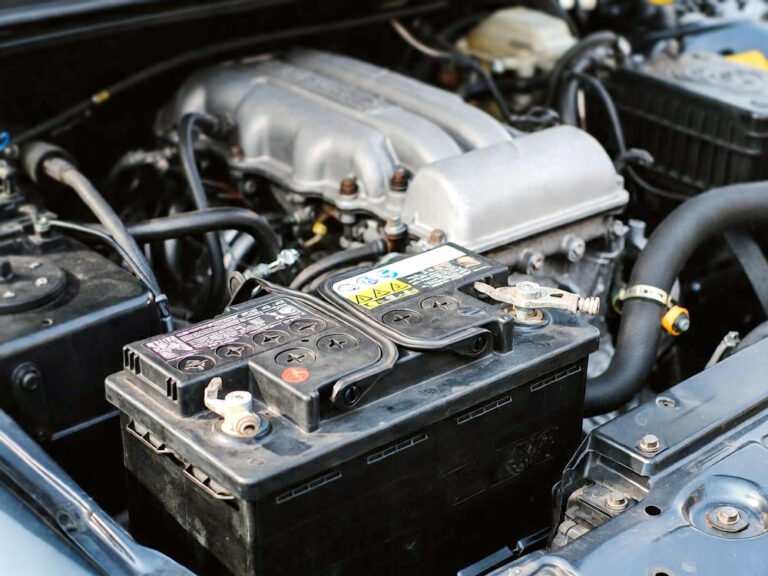You press the gas pedal, but your car doesn’t move right away. Or maybe it shakes when you shift gears, or makes strange noises. If this sounds familiar, your automatic transmission might have a bad clutch. Yes, even automatic cars have clutches, and when they start to fail, you’ll feel it. In this article, you’ll learn the real signs and what to look for if your car has this problem. This can save you time, money, and help you avoid getting stuck on the road.
Your Car Feels Sluggish or Slow to Respond
When your automatic transmission has a bad clutch, one of the first things you might feel is that your car is not as fast as before. You press the gas, and the engine makes noise, but the car doesn’t move right away. It can feel like something is holding it back. This is a sign that the clutch plates inside your transmission are slipping. In a healthy transmission, the clutch helps the gears connect smoothly so your car moves forward. But when the clutch is bad, the gears cannot work together properly.
You may also feel like your car takes longer to shift gears. Normally, an automatic transmission changes gears by itself. You don’t have to do anything. But with a bad clutch, the car might hesitate before shifting. Sometimes it might even stay in one gear too long, or skip a gear. This is because the clutch is struggling to keep the right pressure and grip between the moving parts.
Another thing you might notice is the feeling of weak power, especially when you’re going up a hill or trying to pass another car. You may press the gas pedal harder, but the car just won’t pick up speed. This means the power from the engine is not being passed to the wheels the right way.
You could even feel like your car is dragging, like it’s pulling something heavy. That’s because the slipping clutch is making the transmission work harder than it should. This puts stress on the engine and can cause it to overheat or wear out faster.
Many drivers think these signs are just because their car is old or the engine is tired. But often, it’s the clutch that’s the real problem. Getting your transmission checked can help you find the issue early and stop it from getting worse.
- Car feels slow even when you press the gas
- Delayed gear shifts or gears feel stuck
- Harder to speed up, especially uphill
- Weak power when trying to pass other cars
- Engine works harder but the car doesn’t move faster
You Hear Strange Noises While Driving
If your car is making strange sounds, your clutch might be going bad. These sounds can help you understand what’s wrong. In an automatic transmission, the clutch plates help the gears connect. When these plates wear out or slip, they can cause odd noises that were not there before.
One sound you might hear is a whining noise. This can happen when the transmission is low on fluid or when the clutch inside is slipping. The whining can get louder when you press the gas pedal or try to speed up. Sometimes it can sound like a siren or a fan that is spinning too fast.
Another sound is grinding. This is more serious. It means that the clutch plates might be touching each other the wrong way. This can damage other parts of the transmission. Grinding is a metal-on-metal sound, and if you hear it often, you should get your car checked right away.
You might also hear a clunk or thud when your car shifts gears. This could be the clutch not catching properly when the gears change. In a smooth-running car, the gear shift should be quiet and almost unnoticeable. When it’s loud, it means something inside is not connecting as it should.
A high-pitched squealing sound can also point to clutch trouble. This might happen when you first start the car or when you shift from park to drive. This can mean that parts of the clutch are rubbing or slipping when they should not.
These sounds don’t always mean the clutch is the only problem. But when you hear them along with other signs, like slipping or slow gear changes, the clutch is often to blame. Ignoring these sounds can lead to more expensive repairs later on.
- Whining noise when you press the gas
- Grinding sounds while driving or shifting
- Loud clunk when gears change
- High-pitched squeal when starting or shifting gears
- Noise gets worse with speed or heat
You Smell Something Burning
A bad clutch in an automatic transmission can cause a burning smell. If you notice this while driving, it’s a clear warning sign. The burning smell comes from the clutch slipping and creating too much heat. This heat can burn the clutch plates or even the fluid inside the transmission.
When the clutch slips, it doesn’t grab the gears the right way. This makes the parts inside spin against each other without a firm grip. That rubbing creates friction, and friction creates heat. Over time, this heat burns the surfaces of the clutch and gives off a sharp smell, like burning rubber or plastic.
You might notice this smell most when you drive in traffic or climb hills. These are the times when your car needs to shift gears more often, so the clutch is working harder. A healthy clutch can handle this, but a bad one starts to overheat and burn.
Sometimes, the burning smell can also come from the transmission fluid. When the clutch is bad, it can make the fluid break down faster. Burnt fluid smells bad and also turns dark in color. This fluid is very important because it keeps the transmission cool and helps the parts move smoothly. If the fluid is damaged, the whole transmission can start to fail.
The smell may also come with smoke. This is very dangerous and a strong sign of serious trouble. If you ever see smoke or smell burning for more than a few minutes, stop the car and get it checked.
Ignoring the smell can lead to total clutch failure. Once the clutch is burned too much, the car may not move at all, even if the engine is running. That means a full transmission rebuild, which is very costly.
- Burning smell like rubber or plastic
- Stronger smell in heavy traffic or on hills
- Transmission fluid may be dark and smell burnt
- May also notice smoke from under the hood
- Car feels hot or less powerful
Your Transmission Fluid Looks Dirty or Has a Bad Smell
Transmission fluid is like the lifeblood of your car’s automatic system. It keeps everything clean, cool, and running smooth. But when the clutch inside the transmission goes bad, the fluid often gets dirty or starts to smell bad. This is a warning you should never ignore.
Normally, transmission fluid is red or pink and has a clean, almost sweet smell. When it starts to look dark brown or even black, something is wrong. It means the fluid has been burned or has too much dirt in it. A slipping clutch can make this happen because of the extra heat and wear it creates inside the transmission.
The bad smell is often like burnt oil or a smoky scent. This is caused by the clutch parts wearing down and mixing with the fluid. Tiny metal pieces or burned clutch dust can float in the fluid and make it dirty. If this goes on too long, the dirty fluid can stop doing its job. The gears may stop shifting smoothly, and the whole system can get damaged.
You don’t have to be a mechanic to check the fluid. Most cars have a dipstick under the hood just for transmission fluid. If you pull it out and the fluid is dark, thick, or smells burnt, it’s time to take action.
Some cars don’t have a dipstick and need a shop to check the fluid. If your car is shifting badly and also smells hot or strange, ask a mechanic to look at the fluid right away.
Replacing the fluid may help for a short time, but if the clutch is damaged, it will just get dirty again fast. So don’t just change the fluid and forget. The root problem must be fixed.
- Fluid is dark brown or black
- Strong burnt or smoky smell
- May feel thick or dirty when touched
- Gear shifting is not smooth
- Happens more often in older or hard-used cars
Your Car Jerks or Shakes When Changing Gears
A bad clutch in an automatic transmission can cause your car to jerk or shake, especially when it changes gears. This is a clear sign something is wrong inside. Normally, an automatic transmission changes gears smoothly. You should barely feel it. But when the clutch doesn’t work right, the gear change becomes rough and noticeable.
This jerking can feel like the car jumps forward or pulls back. It can be scary, especially in traffic or while turning. The shaking might feel like you’re driving on a bumpy road, even if the road is flat. This happens because the clutch plates are not catching each other the right way.
You may feel the jerking more when the car is cold. That’s because the parts inside the transmission haven’t warmed up yet. But if it keeps happening even after the car is warm, the clutch is likely worn out or slipping badly.
Sometimes, the jerking is worse when the car goes from first to second gear or when you slow down and then speed up again. This is because the clutch cannot grab the gears fast enough or is letting go too early.
Shaking can also happen when stopping or when putting the car into reverse. You might feel like the car kicks when moving from park to drive. That’s because the clutch is not engaging the gear smoothly. It’s trying to hold on, but slipping at the same time.
This kind of shaking can also damage other parts over time. It puts pressure on the engine, axles, and tires. So it’s not just annoying — it’s dangerous and can cost more money if ignored.
- Car jerks when shifting gears
- Feels like jumping or pulling forward
- Worse when cold or after slowing down
- Noticeable when changing from park to drive
- Shaking can damage other car parts too
Your Car Refuses to Move or Goes Into Limp Mode
One of the worst signs of a bad clutch in an automatic transmission is when your car refuses to move. You press the gas, and the engine revs, but nothing happens. The car might stay in one place or barely roll forward. This can be shocking and frustrating, especially if it happens suddenly.
In some cases, the car might go into what is called “limp mode.” This is a safety setting that the car’s computer uses when it senses a serious problem. It limits the car to one gear, often second or third, and won’t let it go faster than a certain speed. This helps prevent more damage.
A worn-out clutch can cause this because it stops the gears from connecting. Even if the engine is strong, the power cannot reach the wheels. The car may feel like it’s in neutral even when in drive. This is a serious problem and needs fast repair.
Sometimes, the car will move for a few seconds and then stop. Or it might only go in reverse but not forward. These are all signs that the clutch is not doing its job. If the clutch fully fails, the car won’t move at all.
You might also see warning lights on your dashboard. These lights can say “Check Engine” or even a gear icon. The car’s computer is trying to tell you that the transmission has trouble. You should not ignore these signs.
Driving with a failed clutch is not safe. You could get stuck in the middle of the road, or the car might stop at a red light and not move again. Towing and full repairs will be needed if the problem is not fixed soon.
- Car does not move even when in gear
- Might go into limp mode and limit speed
- Only moves in reverse or won’t shift at all
- Warning lights appear on the dashboard
- Needs towing if fully fails
Final Thoughts
A bad clutch in an automatic transmission shows many clear signs. If your car feels weak, shifts hard, smells like it’s burning, or refuses to move, don’t wait. These problems will only get worse over time. Acting early can save you a lot of stress and money. In most cases, a check by a mechanic can find the issue fast. Take care of your car and listen to how it feels, smells, and sounds. These signs are your car’s way of asking for help before it’s too late.
Frequently Asked Questions (FAQs)
Is it safe to drive with a bad clutch in an automatic car?
No, it is not safe to drive with a bad clutch. Your car might lose power while driving, or even stop moving in the middle of the road. A slipping or broken clutch can damage other parts in the transmission too. It can make the engine overheat or cause poor fuel mileage. If you keep driving, you may end up stuck and need a tow. The best thing to do is visit a mechanic as soon as you notice the signs. It’s cheaper and safer to fix the problem early.
Can a bad clutch cause engine problems?
Yes, a bad clutch can lead to engine problems. When the clutch slips, the engine has to work harder to move the car. This puts extra stress on the engine. It may cause overheating, wear down parts faster, or lead to poor fuel use. Also, if the clutch causes jerky motion or vibrations, it can shake the engine too. Over time, these things make the engine weak. Fixing the clutch early helps protect your engine and keeps your car running longer.
Do I need to replace the whole transmission if the clutch is bad?
Not always. Sometimes, only the clutch parts inside the transmission need to be replaced. But if the clutch has been bad for a long time, it can damage other parts too. If the damage is big, then a full rebuild or replacement might be needed. The only way to know for sure is to have a mechanic open the transmission and check it. If you act early, you may only need a clutch repair, which is cheaper than a full transmission replacement.
Can transmission fluid cause clutch problems?
Yes, low or dirty transmission fluid can cause clutch problems. The fluid helps the clutch and gears work smoothly. If it gets low or dirty, the clutch may start slipping or overheating. Dirty fluid can also wear down the clutch faster. That’s why it’s important to check the fluid often. If you see it is dark, thick, or smells burnt, get it changed right away. Keeping the fluid clean can help your clutch last longer and work better.
Do I have to change the clutch in an automatic car?
Yes, automatic cars also have clutches, though they work differently than in manual cars. Over time, the clutch plates in an automatic transmission wear down. When they start to slip or fail, you’ll notice signs like poor shifting, strange smells, or noises. Changing the clutch when it goes bad is important. If not, it can lead to bigger and more expensive problems inside the transmission. A mechanic can check if your clutch needs to be changed.
Is it expensive to fix a bad clutch in an automatic transmission?
Fixing a bad clutch can cost a lot, especially if the problem has gone on for a while. The price depends on your car model, how bad the damage is, and where you live. A simple clutch repair might not be too expensive. But if the clutch has damaged other parts, it could cost much more. It’s always cheaper to fix it early. Waiting too long might mean you need a full transmission rebuild or replacement, which costs a lot more.
Can a bad clutch affect fuel mileage?
Yes, a bad clutch can lower your fuel mileage. When the clutch slips, the engine works harder to move the car. This uses more fuel. You might notice you have to fill up more often or that your miles per gallon go down. Also, a weak clutch can make gear shifts rough or slow, which wastes fuel too. Fixing the clutch will help your car run smoother and more efficiently, saving you money on gas in the long run.
Do I need a mechanic to check for a bad clutch?
Yes, a mechanic is the best person to check for a bad clutch. They have the tools and knowledge to open the transmission and see what’s wrong. While you can check things like the smell or color of the fluid, only a mechanic can fully test the clutch. Trying to fix it yourself without experience can make the problem worse. A good mechanic can tell you if the clutch is the problem and how to fix it the right way.


